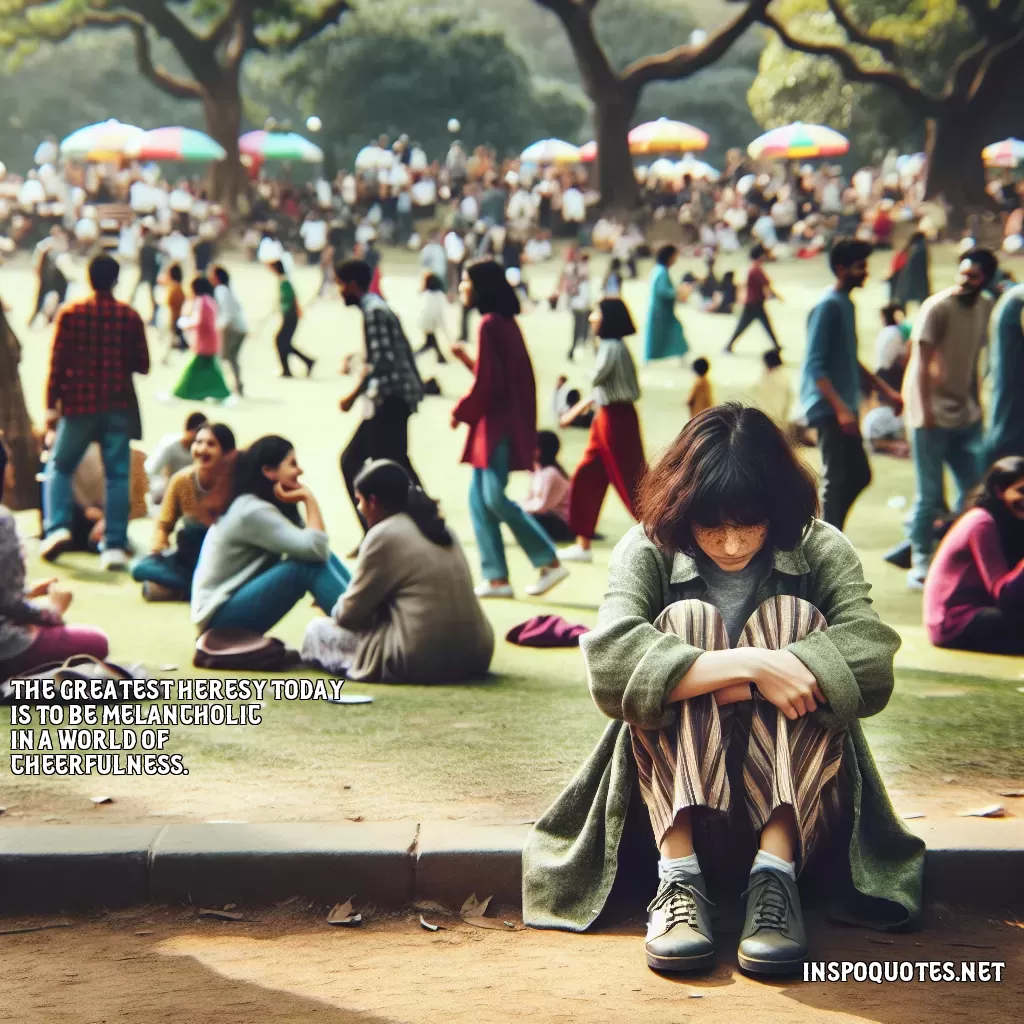
The greatest heresy today is to be melancholic in a world of cheerfulness.
Author: Jean-Paul Sartre
👁️ 19 views

The greatest heresy today is to be melancholic in a world of cheerfulness.
👁️ 19 views
The quote "The greatest heresy today is to be melancholic in a world of cheerfulness" suggests that in contemporary society, there is a prevailing expectation or pressure to maintain a sense of optimism and happiness. Being melancholic, or experiencing a deep, reflective sadness, is viewed as contradictory or countercultural to this pervasive cheerfulness. In many modern societies, there is an emphasis on positivity, success, and the constant pursuit of happiness. Social media, advertising, and self-help industries often promote the idea that individuals should continuously strive to be joyful and fulfilled. This creates a cultural environment where displaying sadness or melancholy can feel inappropriate or unwelcome. The use of the word "heresy" in the quote is particularly striking. Traditionally, heresy refers to a belief or opinion that goes against established religious doctrines. By equating melancholy with heresy, the quote highlights how intense the societal injunction to remain cheerful is perceived to be. To be melancholic is to challenge this social norm, much like committing a heresy challenges religious orthodoxy. Moreover, the quote draws attention to the irony and possible superficiality of mandated happiness. It raises questions about the authenticity of perpetual cheer and the validity of experiencing a fuller range of emotions, including those that are less pleasant. It invites reflection on the importance of embracing all emotions as part of the human experience, suggesting that there is value in melancholy that is overlooked due to the overwhelming emphasis on cheerfulness. Embracing melancholy, therefore, might not be an act of defiance but rather an acceptance of reality and a way to engage more deeply with life and self-awareness.
Quote By: Jean-Paul Sartre
Jean-Paul Sartre was a French existentialist philosopher, playwright, and novelist, born on June 21, 1905, in Paris and passing away on April 15, 1980. He is best known for his works such as "Being and Nothingness" and the play "No Exit," which explore themes of freedom, responsibility, and the human condition. A prominent figure in 20th-century philosophy and literature, Sartre was also a vocal political activist, advocating for socialism and human rights throughout his life.
Bio added on: 2025-02-16 12:12:50